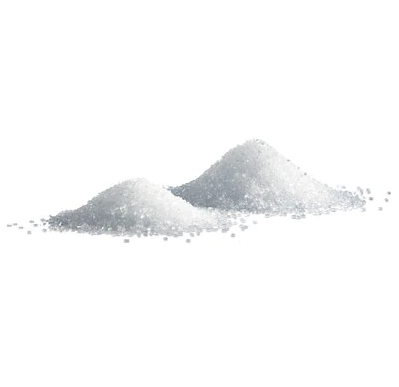Teflon knowledge
- Home
- Teflon knowledge
- What is Teflon?
26 Aug 2024
What is Teflon/PTFE? Introduction to Teflon
- Teflon (scientific name: polytetrafluoroethylene, English name: Polytetrafluoroethene, abbreviated as PTFE) is a widely used fluorocarbon polymer. It was originally developed for defense and high-tech uses, but has since spread to civilian use. Teflon is known as the "King of Plastics" for its outstanding properties.
- Teflon is not only not soaked by water and oil, but also has excellent resistance to acids, alkalis and various organic solvents. Therefore, it is often used as a coating material for non-stick pans and as a container for storing and transporting corrosive chemicals in the chemical industry. In addition, Teflon's low coefficient of friction makes it an excellent lubricating material, which can effectively reduce friction and wear between mechanical parts.
- Currently, Teflon is widely used in many fields such as food industry, semiconductor, chemical industry, machinery, construction and medical treatment. Its stability, safety and durability make it an indispensable and important material in various modern scientific and technological and industrial production. The trademark name of Teflon is Teflon®, which was first discovered and named by the American DuPont Company in 1938.

Teflon (PTFE tetrafluoroethylene) material characteristics
- 1. Corrosion resistance: Teflon can resist most strong acids and alkalis, and is insoluble in various major organic solvents. Therefore, it is often used in laboratories and industries to store and handle corrosive chemicals.
- 2. Self-lubricating property: Teflon has an extremely low friction coefficient (less than or equal to 0.1) and is one of the solid substances with the smallest known friction coefficient. In applications where friction reduction is required, such as bushings and bearings, Teflon is an ideal oil-free lubricant material that can operate without the addition of lubricant, reducing the risk of lubricant contamination.
- 3. High and low temperature resistance: Teflon has a very wide temperature resistance range, from about -190°C to 260°C, and a melting point of about 327°C. This enables it to maintain stable physical properties under extreme temperature conditions, making it suitable for high-temperature applications such as automotive engine oil seals and piston rings.
- 4. Anti-aging: Teflon can maintain its performance unchanged even when exposed to the atmosphere for a long time and will not crack. Therefore, it is often used as a covering material for wires and cables, which can resist UV radiation and is not easy to age.
- 5. Anti-adhesion: Since the surface of Teflon is covered with fluorine atoms, these fluorine atoms have anti-adhesion properties, and other substances are difficult to adhere to its surface. This makes Teflon an ideal material for products such as nonstick cookware coatings and Gore-Tex breathable, waterproof fabrics.
- 6. Flame retardancy: The melting point of Teflon is about 327°C. Most fire sources cannot make it burn, and it has excellent flame retardant effect. Small amounts of Teflon are often added to products such as flame-resistant carpets and curtains to enhance their flame retardancy.
- 7. High insulation: Teflon has a very high resistivity (over 10^18 ohm·m), good insulation and is not affected by the environment and frequency. In high-quality audio equipment, Teflon parts are used to reduce resistance interference and improve signal quality.
Teflon/PTFE/Teflon Applications
PTFE is widely used in both household life and high-tech industries due to its stability, safety and durability. Here are some of the main application areas:
- • Food and Household Utensils: Teflon's non-stick properties make it an ideal coating material for non-stick pots, baking trays, pancake molds and other kitchen utensils. It is also used in bread and pastry processing equipment such as dough kneaders, rollers and cutters.
- • Chemical Industry: Due to its resistance to acids, alkalis, and organic solvents, Teflon is often used in containers and pipes for storing and handling corrosive chemicals, providing a stable and safe solution.
- • Mechanical and automotive industries: Teflon's low coefficient of friction makes it a lubricant material used to make self-lubricating bearings and bushings to reduce friction and wear. In addition, it is also used in automobile seals, waterproof strips and various valve parts.
- • Electronic and electrical equipment: Teflon's high insulation properties make it an ideal insulation material for wires and cables, and it reduces resistance interference and improves signal quality in high-quality audio equipment.
- • Medical field: Teflon is often used to make medical devices such as injection needles, catheters and drip sets. Its antibacterial and chemical stability perform well in medical applications.
- • Construction and Textile Industry: Teflon's anti-aging and weathering properties make it widely used in building materials and textiles, such as Gore-Tex waterproof and breathable fabrics and weather-resistant coatings.
- Other applications: Teflon is also used to make anti-leakage belts, acid and alkali resistant tanks and pipes, photocopier rollers and surface coatings of various industrial equipment, providing excellent chemical resistance and high and low temperature resistance.




